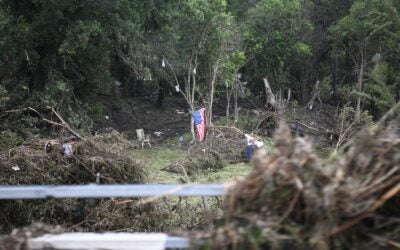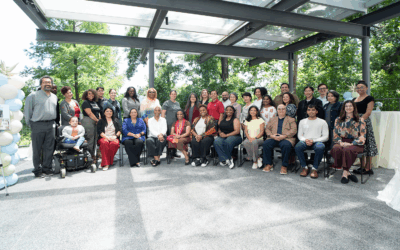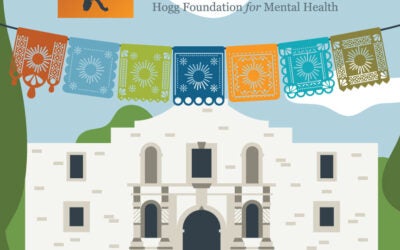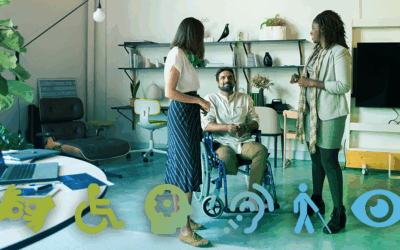This blog post is guest authored by Larry D. Brown Jr., PhD, associate director for Community Health and Violence Prevention Services at Harris County Public Health He presented a session at the Robert Lee Sutherland Seminar as part of the Building Partnerships and Collaboration track. The views expressed in this blog post are those of the author. The content has been lightly edited for length and clarity.
The session you presented at the 2025 Robert Lee Sutherland Seminar was called, “Toward a More Effective 911 Alternative: Holistic Assistance Response Team.” What were some of your goals for the session, and what do you hope attendees took from it?
The goal of this session was to provide attendees with a clear and practical understanding of how Harris County Public Health’s Holistic Assistance Response Team (HART) operates as a transformative alternative to conventional 911 responses.
Unlike traditional models that dispatch police officers to nearly all emergencies, HART sends unarmed professionals trained in behavioral health, crisis intervention, and basic medical care to non-violent calls related to mental health crises, substance use, homelessness, and other social determinants of health.

I wanted attendees to gain insights into the development, implementation, and data-driven evaluation of HART, learning how the program successfully diverts calls from law enforcement and connects vulnerable residents to critical services. By sharing concrete outcomes—such as HART responding to over 21,500 calls and freeing up thousands of deputy hours—attendees could see the tangible benefits of investing in a public health–centered, holistic emergency response.
Ultimately, I hope attendees left equipped with knowledge and strategies that empowered them to adapt or replicate similar models in their own communities, advancing the national movement toward more compassionate, effective, and equitable emergency systems.
What’s unique about your approach to your work?
What sets HART apart—and what makes our approach unique—is the commitment to viewing emergency response through a comprehensive public health lens rather than through the traditional criminal justice framework and response model.
Many emergencies arise from underlying issues like untreated mental illness, homelessness, substance abuse, and other non-violent issues, which require specialized care and social supports rather than policing.
HART is composed of professionals trained specifically to engage with individuals in crisis with empathy and expertise, providing immediate assistance and case management while also addressing longer-term needs. This holistic response reduces unnecessary law enforcement involvement, promotes community trust, and enhances health outcomes. Additionally, our approach is firmly grounded in data—we rigorously track outcomes to ensure continuous improvement and provide a replicable evaluation framework for other jurisdictions.
Can you share one personal anecdote that testifies to the impact you’re making?
The HART team was called by sheriff deputies to assist with a domestic violence call involving a woman with a history of sexual and domestic abuse. She had filed charges and was homeless after being kicked out of her boyfriend’s home. The call came late on a weekend when social welfare resources were limited. Deputies were managing law enforcement duties and needed HART’s help to provide both immediate and long-term care.
HART made contact with the client, conducted a field evaluation and needs assessment, and built a trusting rapport. HART developed a plan for her short- and long-term care, secured placement at a women’s shelter, and arranged transportation for her and her belongings. Meanwhile, case managers coordinated ongoing support through Harris County Public Health to ensure she received sustained assistance.
Mutual Aid, Mutual Respect
In this episode of Into the Fold, we speak with Dawn Capra, Director of Housing Advocacy at the Texas Housing Foundation. She describes how well-coordinated and respectful cooperation between community organizations supported both the logistical needs and emotional well-being of displaced residents.
Rebuilding Trust in Our Systems of Care
Trust is the foundation of every system that is supposed to support us—schools, hospitals, mental health services, and even the justice system. But for many communities, that trust has been broken again and again.
Listening to Learn: Lessons from Communities of Care
As we move forward, the foundation will continue to show up in communities with the spirit of collaboration and listening to learn.
Special Opportunity Funding: Emotional Well-Being on the College Campus
Two of this year’s Special Opportunity Funding grants were awarded to programs that support student wellness at the university level.
Three Things to Know About Meeting with Policymakers
From the Robert Lee Sutherland Seminar Policy Pre-seminar, here are three things to know about meeting with policymakers.
Building Access with Intention: Reflecting on National Disability Employment Awareness Month
October is National Disability Employment Awareness Month (NDEAM), which is a time to celebrate the contributions of employees with disabilities and to think honestly about how we can improve accessibility in our workplaces. For me, that means moving beyond checkboxes and compliance toward spaces and workplaces built with intention.






